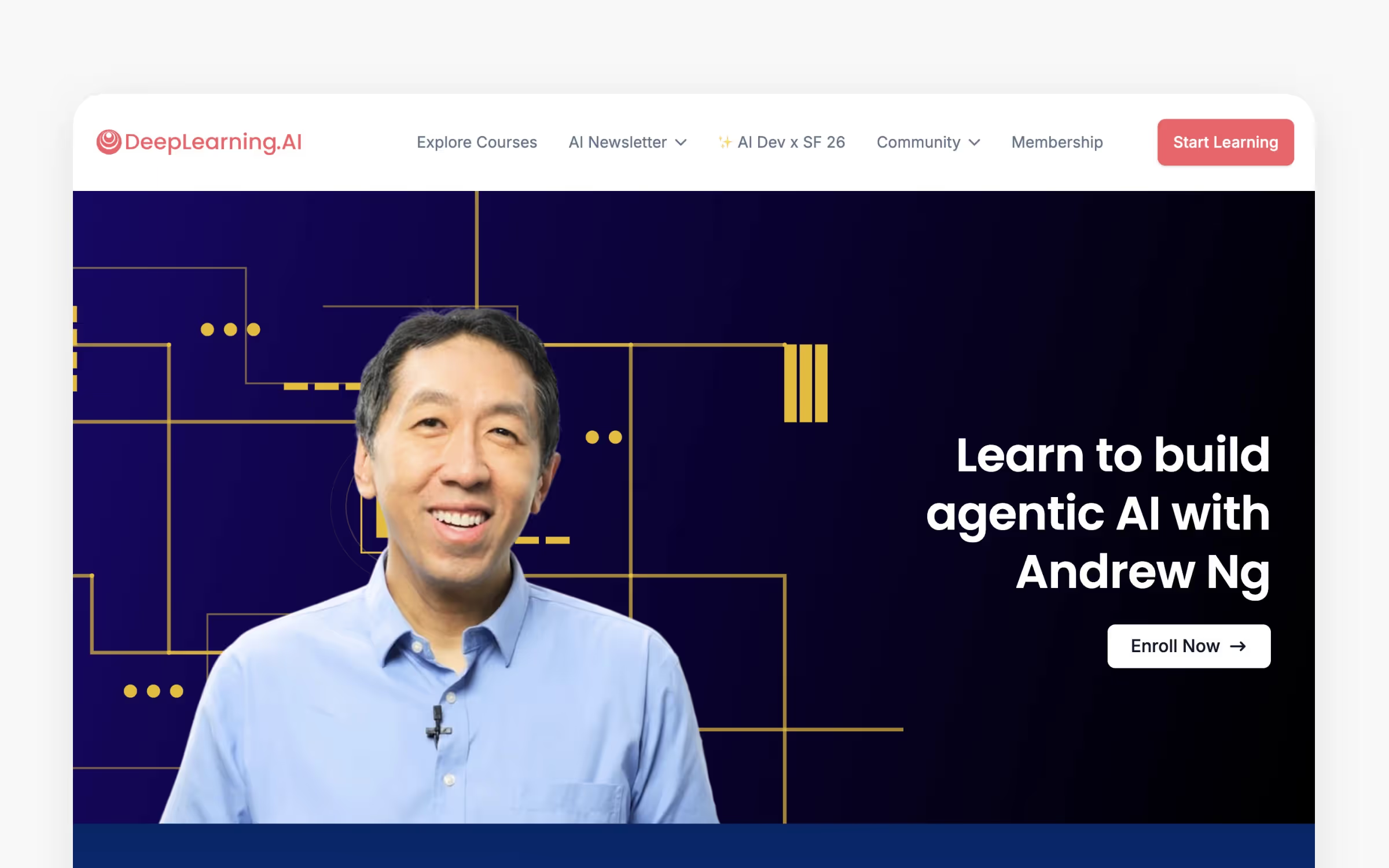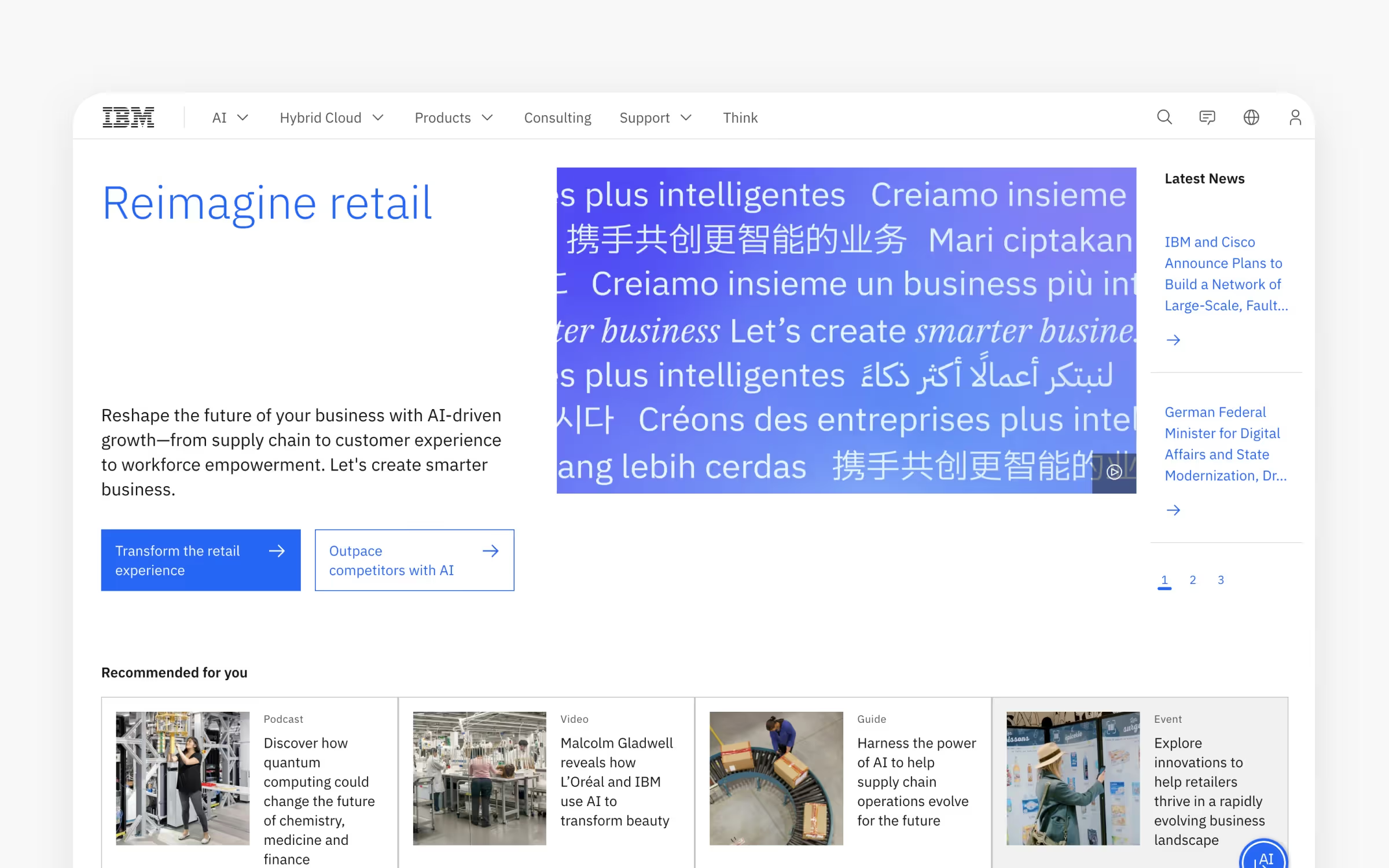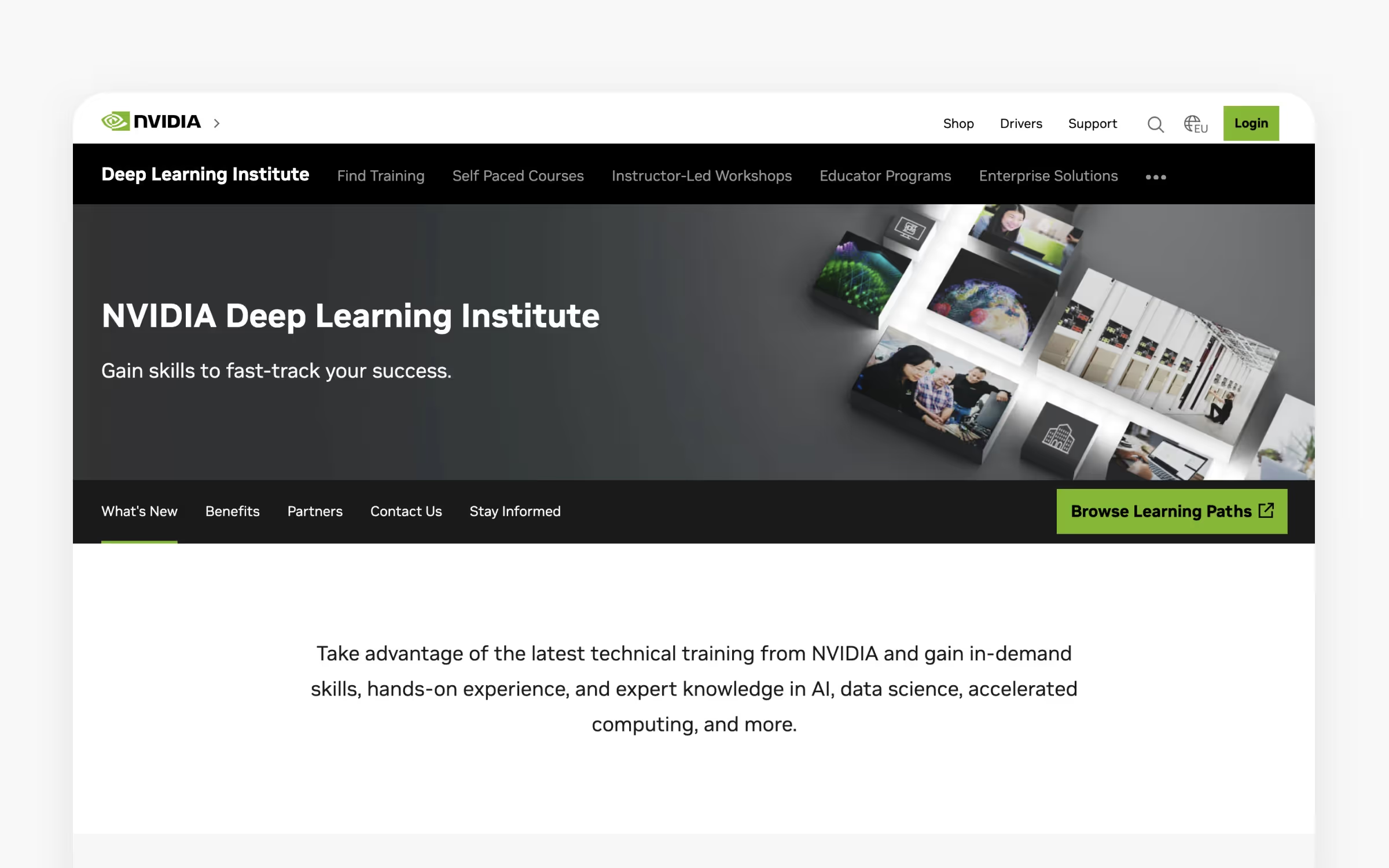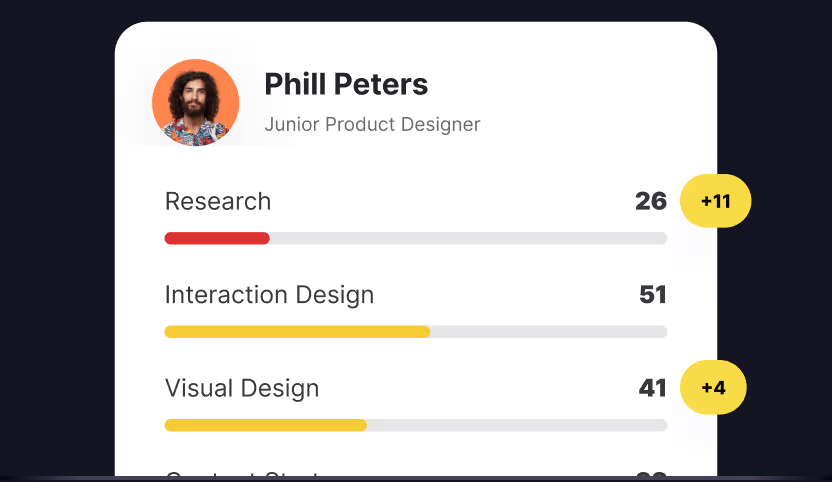
Artificial Intelligence (AI) is now embedded into the core of business operations, product development, marketing, and customer experience. For professionals aiming to gain an edge, deepen technical fluency, or prepare for advanced AI roles, paid AI courses offer structured, high-value learning with recognized credentials.
Unlike free tutorials or introductory modules, paid AI courses typically go further in offering comprehensive curriculum design, graded assessments, instructor feedback, and industry certification. Many are offered by leading universities, major tech companies, or platforms known for producing job-ready talent.
This guide covers the Top Paid AI Courses in 2026, curated for their reputation, educational quality, global availability, and relevance to real-world applications. Whether you're a designer exploring ethical AI use or an engineer deploying ML models, these programs deliver measurable value. All of them are online, certificate-granting, and accessible worldwide.
1. Uxcel — AI fundamentals for UX

Uxcel is expanding its acclaimed learning platform into AI education, specifically tailored for non-engineering professionals working in product and design. Its new AI track is designed to help UX designers, product managers, and digital strategists understand, apply, and communicate AI concepts in their everyday workflows, without the need to learn code or build models.
Offered as part of Uxcel’s premium subscription, the AI fundamentals for UX course is modular, self-paced, and highly interactive. Instead of long lectures, learners move through visual, scenario-based lessons that cover topics such as prompt design, AI ethics, user behavior prediction, and human-AI collaboration in product cycles. Assessments are integrated using Uxcel’s Skill Graph, which visualizes progress across key AI competencies.
Learners earn a verified certificate and performance badge upon completing all required modules and assessments. These credentials can be added to a LinkedIn profile or resume and are particularly valuable for professionals who need to demonstrate AI fluency to peers or stakeholders in cross-functional teams. Uxcel also offers early access perks and exclusive rewards to users who join their AI waitlist.
What sets Uxcel apart is its non-technical orientation. While most AI courses are tailored for developers or data scientists, Uxcel is building content for the rest of the team: the designers, PMs, and strategists who need to make AI-augmented decisions or collaborate with technical leads. It simplifies AI without dumbing it down.
Other courses that are currently available are the AI Prompts Foundations course, the Enhancing UX Workflow with AI course, and the Human-Centered AI course, with many more to come.
Top Features:
- Scenario-based learning modules for real product use cases
- Skill Graph for progress tracking and benchmarking
- Shareable certificate and performance badge
- Subscription access with new AI content rolling out monthly
Ideal for: Product managers, UX designers, team leads, and professionals in cross-functional roles who want to learn how AI applies to decision-making and workflow strategy
2. Stanford University — AI professional program

Stanford University offers one of the most academically rigorous paid AI programs through its Stanford Online platform. The Artificial Intelligence Professional Program is structured as a sequence of graduate-level courses taught by Stanford faculty, mirroring much of the content delivered on campus to computer science students. It is widely regarded as one of the most prestigious online AI credentials available today.
To earn the certificate, students must complete a set of core and elective courses, which collectively cost between $3,000 and $4,500, depending on the sequence and schedule chosen. Each course includes graded assignments, readings, and assessments. The content dives deep into machine learning, deep learning, neural networks, NLP, and reinforcement learning, making it suitable for those with a solid technical foundation.
This program is not intended for beginners. It assumes comfort with linear algebra, calculus, probability, and Python programming. Most learners enter the program with a background in data science, software engineering, or a related field. The self-paced format makes it flexible for working professionals, but the depth of the content demands consistent effort and academic discipline.
Graduates of Stanford’s AI Professional Program receive a certificate from the Stanford Center for Professional Development, a credential that holds strong weight with employers in tech, academia, and research. It signals mastery of foundational and applied AI principles, and is often seen on the resumes of AI engineers, PhD candidates, and advanced practitioners.
Top Features:
- Stanford-designed curriculum with academic rigor
- Includes both foundational and specialized AI topics
- Professional certificate from Stanford CPD
- Self-paced, high-effort learning track
Ideal for: Experienced engineers, data scientists, or research professionals with a STEM background who want formal AI training from a top-tier university
3. MIT — Professional certificate in machine learning and artificial intelligence

The Massachusetts Institute of Technology (MIT) delivers one of the most comprehensive paid AI programs through its MIT xPRO platform. The Professional Certificate in Machine Learning and Artificial Intelligence is designed to help professionals build a strong foundation in AI systems, machine learning techniques, and real-world deployment strategies. The course is highly technical and targets professionals with a solid mathematical and programming background.
The program spans 4 to 6 months, with an estimated weekly commitment of 10–15 hours. The total cost typically falls between $2,300 and $3,000, depending on regional pricing and promotional offers. Learners go through a structured sequence of modules covering supervised learning, unsupervised learning, deep learning, computer vision, and reinforcement learning, with assignments and projects included at every stage.
This certificate is ideal for professionals who want to develop hands-on experience. Each module contains lab sessions and case studies that use real-world datasets and practical scenarios. Learners build and evaluate models using Python and widely adopted frameworks. The curriculum is designed by MIT faculty and developed in partnership with industry experts, ensuring both academic depth and practical application.
A certificate from MIT xPRO adds considerable value to a professional profile, especially in roles related to data science, applied machine learning, or AI product architecture. While it is not intended for those without a technical background, it stands out as a high-ROI investment for individuals looking to implement AI at a production or organizational level.
Top Features:
- Developed by MIT faculty and industry leaders
- Extensive hands-on labs and real-world case studies
- Covers full AI/ML development lifecycle
- Recognized certificate from MIT xPRO
Ideal for: Engineers, analysts, and experienced technical professionals seeking applied expertise in machine learning and AI
4. Udacity — AI nanodegree program

Udacity offers a well-established, mentor-guided AI Nanodegree program that emphasizes applied learning and job-readiness. Unlike traditional university-backed courses, Udacity’s approach is industry-driven, focusing on practical skills such as search algorithms, planning, probabilistic reasoning, neural networks, and building AI agents. It’s particularly suited for professionals seeking to transition into AI-focused roles in tech.
The program takes approximately 3 to 4 months to complete with an average commitment of 10 hours per week. It operates on a subscription model, costing around $399 per month, though frequent discounts and scholarship opportunities are available. To graduate, learners must complete several real-world projects, which are reviewed by human mentors and contribute to a final professional portfolio.
The AI Nanodegree is not beginner-level; it assumes prior familiarity with Python and some understanding of computer science fundamentals. However, it avoids overly academic theory in favor of hands-on tasks, making it an ideal stepping stone for career switchers or mid-level developers looking to specialize. Included career services, such as resume reviews, GitHub portfolio tips, and job application support, add practical value.
Udacity’s reputation is particularly strong among tech companies, startups, and mid-sized enterprises that prioritize demonstrable skills. While it doesn’t carry the same academic prestige as MIT or Stanford, the Nanodegree is recognized for its ability to prepare learners for immediate contributions in AI product development or ML teams.
Top Features:
- Project-based curriculum with mentor feedback
- Career coaching and portfolio-building services
- Strong alignment with real industry use cases
- Flexible, self-paced learning with deadlines
Ideal for: Developers, technical professionals, and career changers looking for practical AI skills and a project-ready portfolio
5. Harvard University — Complete course in computer science for artificial intelligence

Harvard University, through the edX platform, offers a specialized Professional Certificate in Computer Science for Artificial Intelligence. This program is designed to bridge foundational computer science knowledge with key AI concepts, making it suitable for learners seeking academic rigor without pursuing a full degree. The structure is grounded in Harvard’s CS50 curriculum, renowned for its quality and instructional depth.
The program consists of two main courses: CS50’s Introduction to Computer Science and CS50’s Introduction to Artificial Intelligence with Python. It requires approximately 6 months to complete at a self-paced rhythm of 6–10 hours per week, with a total cost of about $398 (each course costing roughly $199 if taken for a verified certificate). While you can audit the courses for free, certificates are only issued to paying students.
This certification is ideal for intermediate learners. While it begins with foundational computer science principles, the AI-specific portion delves into search algorithms, adversarial games, machine learning, and natural language processing, all implemented in Python. Learners develop and submit real AI projects, including building intelligent agents.
Harvard’s name carries significant academic prestige. Completing this certificate not only deepens your technical competency but also serves as a strong signal of capability in technical interviews or graduate school applications. Though not tailored for complete beginners or non-technical professionals, it strikes a balance between theory and practice, especially for aspiring developers or researchers.
Top Features:
- Harvard CS50 curriculum taught by university faculty
- Two-course structure combining CS foundations with AI applications
- Python-based project work and graded assignments
- Recognized certificate via the edX platform
Ideal for: Intermediate learners, aspiring AI developers, and professionals seeking university-grade instruction without enrolling in a full degree program
6. DeepLearning.AI — Generative AI for everyone

DeepLearning.AI, founded by Andrew Ng, offers the Generative AI for Everyone course as part of its mission to democratize access to modern AI education. This program is particularly focused on the theory and applications of generative AI models like GPT, DALL·E, and others. Unlike courses centered on coding or engineering, this course aims to provide a conceptual framework for understanding how generative models work and how they can be used in various fields.
The course is hosted on Coursera and takes approximately 6–10 hours to complete over 2–3 weeks, making it relatively short and digestible. It’s entirely free to audit, and learners can choose to pay a fee (usually around $49) if they want a certificate of completion. The course is broken into video lectures, short assessments, and quizzes that reinforce theoretical learning.
While not designed for engineers or advanced practitioners, this course offers enormous value to business professionals, marketers, product designers, and strategists who want to understand how generative AI can be applied in real-world contexts. It touches on prompt design, model behavior, biases, ethical implications, and business impact without requiring math or programming skills.
As a DeepLearning.AI offering, the program benefits from clear instruction, broad industry relevance, and academic integrity. It’s widely respected as an onboarding point for professionals aiming to integrate generative AI into products, workflows, or strategic initiatives.
Top Features:
- Taught by Andrew Ng and DeepLearning.AI instructors
- Focuses on generative models like GPT and DALL·E
- Free to audit with an optional certificate
- Accessible to non-technical professionals
Ideal for: Product managers, creatives, strategists, and generalists looking to understand and apply generative AI without needing coding expertise
7. UC Berkeley — Artificial intelligence and machine learning course

UC Berkeley, through its Executive Education platform, offers an Artificial Intelligence and Machine Learning Certificate tailored for professionals seeking a non-technical yet strategic understanding of AI. Unlike engineering-heavy courses, this program focuses on how AI can be integrated into business functions, product strategies, and digital transformation initiatives.
The course runs for 8 weeks with an expected commitment of 4–6 hours per week, delivered entirely online. It includes pre-recorded faculty lectures, interactive exercises, peer collaboration, and a final capstone project. The pricing typically ranges from $2,800 to $3,200, depending on enrollment period and any applicable regional pricing adjustments.
This certification is especially beneficial for executives, managers, and team leaders who are evaluating AI investments, managing AI-driven teams, or shaping organizational strategy. While it covers foundational AI concepts, it leans heavily into frameworks, real-world case studies, and leadership alignment. Coding is not required, making it accessible to non-technical professionals.
A certificate from UC Berkeley Executive Education adds strong credibility. The program’s emphasis on executive-level impact, ethical AI deployment, and practical application ensures it holds real value in enterprise contexts. It’s not just an educational course; it’s a leadership toolkit for navigating AI-driven change.
Top Features:
- Business-centric curriculum with executive focus
- Final capstone project to apply strategic concepts
- Certificate from UC Berkeley Executive Education
- Strong emphasis on real-world AI integration
Ideal for: Executives, consultants, senior managers, and professionals responsible for evaluating or implementing AI in business operations
8. Columbia University — Columbia engineering artificial intelligence certificate program

Columbia University offers a comprehensive Artificial Intelligence Certificate Program through its Columbia Engineering division, aimed at professionals seeking a graduate-level understanding of AI. The curriculum is academically rigorous, covering both theoretical foundations and practical implementation strategies for machine learning, robotics, and intelligent systems.
The program spans approximately 10–12 months, with a suggested pace of 8–10 hours per week. The total cost is around $1,260, making it more affordable than many university-grade AI programs. It consists of multiple courses, including a capstone project, all taught by Columbia faculty. Upon completion, students receive a professional certificate, which may be applicable as credit toward a Columbia master’s degree if they later enroll.
It’s best suited for learners with a strong STEM background, including familiarity with Python, calculus, and statistics. The course delves deep into algorithmic thinking, optimization, and model building, which makes it more appropriate for engineers, analysts, or researchers rather than business generalists.
The Columbia name carries global weight, and this program offers a rare blend of affordability, depth, and academic prestige. For those considering graduate-level AI education but wanting to start with a flexible, standalone credential, this program offers a meaningful, university-backed pathway.
Top Features:
- Graduate-level curriculum and faculty
- Multi-course format with final project
- Potential credit toward Columbia's Master’s in Computer Science
- Affordable pricing for a university certificate
Ideal for: Technical professionals, engineers, and researchers aiming to formalize their AI training with an academically rigorous and recognized program
9. IBM — Applied AI professional course (Coursera)

The IBM Applied AI Professional Certificate, offered through Coursera, is a beginner-to-intermediate level program focused on teaching the practical skills necessary to build AI applications. Developed by IBM’s AI team, the course emphasizes applied learning using IBM Watson, Python, and tools such as Jupyter Notebooks to introduce learners to real-world AI development.
The program is structured into six self-paced courses, which can be completed in about 3–6 months, depending on the learner’s schedule. Coursera uses a subscription model priced at around $39–$49 per month, making the total cost relatively low. Learners earn a shareable IBM-branded certificate upon successful completion of all assessments and hands-on projects.
One of the strengths of this certification is its accessibility. No prior programming or AI knowledge is required, and the program includes foundational instruction in Python, machine learning, computer vision, and natural language processing. It’s ideal for learners transitioning into AI from non-technical fields or those looking to enter the field gradually with real tools.
Given IBM’s global recognition and the hands-on nature of the projects, this credential holds weight with employers, particularly in roles involving AI collaboration, support, or prototyping. It’s not a deep academic program, but it’s a strong launchpad for entry-level positions and further learning.
Top Features:
- Beginner-friendly with no coding prerequisites
- Hosted on Coursera with interactive labs and assessments
- Focus on practical AI tools, including IBM Watson
- Certificate from IBM upon course completion
Ideal for: Career switchers, students, and non-technical professionals seeking foundational AI skills and project-based learning with a recognizable certificate
10. NVIDIA Deep Learning Institute — AI course

The NVIDIA Deep Learning Institute (DLI) offers a series of short-form AI certifications focused on deep learning, computer vision, and natural language processing. These programs are especially geared toward engineers, developers, and data scientists interested in high-performance computing and real-time AI applications, including those involving GPU-accelerated infrastructure.
Courses vary in length, typically between 8 to 16 hours, and are offered in both instructor-led and self-paced formats. To earn a certificate, learners must complete hands-on labs and pass a final assessment that simulates real-world AI deployment challenges. Course prices generally range from $90 to $250 USD, with discounts or bundles available for institutions and enterprise teams.
The platform is best suited for learners with a technical foundation in Python programming and machine learning basics. While some entry-level courses are available, most certifications assume intermediate skills and a focus on implementing and optimizing models using NVIDIA’s ecosystem (CUDA, TensorRT, etc.). It’s particularly valuable for those working on performance-critical applications such as autonomous vehicles, robotics, or edge AI.
What sets DLI apart is the combination of real-time tools, GPU-based learning environments, and hardware-specific optimization practices. While the certificates may not carry university branding, they are highly respected in AI engineering roles, especially where NVIDIA tools and infrastructure are standard.
Top Features:
- Practical, GPU-accelerated AI training
- Specialized focus on performance and deployment
- Certificates are available after passing skill assessments
- Short, intensive, and highly technical
Ideal for: Engineers and developers working with high-performance AI models, particularly in industries requiring real-time computing and deployment on NVIDIA platforms
11. Oxford University — Oxford artificial intelligence programme

The Oxford Artificial Intelligence Programme, offered by Oxford Saïd Business School in collaboration with Emeritus, is a six-week online executive education course focused on the strategic and ethical implications of AI. Unlike technical bootcamps, this program is tailored for business leaders, policymakers, and consultants who need to understand AI from a strategic decision-making perspective rather than from a coding or engineering angle.
Participants commit to 6–8 hours per week, completing weekly modules that include recorded lectures, real-world case studies, reflection exercises, and peer discussions. Topics include foundational AI concepts, business use cases, AI governance, risk and regulation, and societal impact. A final capstone assignment requires learners to apply their knowledge to a real or hypothetical AI initiative within their organization.
The course costs approximately $2,500–$3,000, depending on enrollment date and region. No technical experience is required, and the learning experience is intentionally structured to engage professionals from non-technical domains such as law, operations, and corporate strategy. The certificate issued upon completion is branded by Oxford Saïd, adding significant prestige and professional credibility.
One of the key strengths of this program is its deep dive into responsible AI, addressing topics like bias, transparency, and long-term social consequences. As organizations worldwide grapple with ethical AI deployment, Oxford’s emphasis on governance and oversight makes this course uniquely relevant for those in leadership roles.
Top Features:
- Strategic, non-technical curriculum developed by Oxford faculty
- Focus on ethics, policy, and business integration of AI
- Final capstone project with real-world application
- Globally respected Oxford Saïd Business School certificate
Ideal for: Executives, legal professionals, consultants, and team leaders guiding AI adoption strategies and governance initiatives
12. Cambridge Judge Business School — AI leadership programme

The AI Leadership Programme from Cambridge Judge Business School, delivered in collaboration with Emeritus, is designed to equip senior professionals with the strategic insights and organizational frameworks needed to lead AI-driven transformation initiatives. It targets non-technical leaders—including directors, consultants, and senior managers—who oversee or influence the deployment of AI across departments or companies.
The program spans six weeks, requiring about 4–6 hours per week. It includes a mix of video lectures, real-world business case studies, peer collaboration, and a final capstone project where participants apply AI strategy models to their own organizations or a selected business case. The tuition typically ranges between $2,000 and $2,500 USD, with various promotional discounts occasionally available.
Unlike technical certifications, this program does not teach machine learning algorithms or data science. Instead, it emphasizes organizational readiness, AI governance, ethics, change management, and strategic alignment. It is ideal for professionals who are responsible for leading teams or advising clients but are not themselves involved in technical development.
The certificate, co-branded by Cambridge Judge Business School, is globally recognized and adds credibility to the learner’s role in AI strategy or digital transformation. Combined with the academic rigor of Cambridge and a focus on business outcomes, this program is a premium option for enterprise-level professionals.
Top Features:
- Strategic focus on business and operational integration of AI
- Final capstone project and peer-reviewed assignments
- Globally respected certificate from Cambridge Judge
- Non-technical and leadership-oriented curriculum
Ideal for: Senior managers, department heads, and consultants driving AI strategy, innovation, and enterprise adoption
13. Kellogg School of Management — AI strategies for business transformation

The AI Strategies for Business Transformation program by the Kellogg School of Management is an executive education course designed to help professionals evaluate and implement AI-driven initiatives at scale. It emphasizes AI adoption from a strategic, cross-functional, and innovation-focused lens, without diving into coding or algorithm development.
This eight-week program requires about 6–8 hours per week and is delivered entirely online via Emeritus. The curriculum includes business simulations, industry case studies, weekly assignments, and a final capstone project that applies AI frameworks to real-world challenges. Participants explore AI’s impact on customer personalization, predictive analytics, organizational design, and change management.
The course is priced around $2,600–$2,900 USD, depending on timing and enrollment offers. No prior technical expertise is needed, making it an accessible yet high-impact program for consultants, general managers, and senior business professionals across sectors. The instruction is provided by Kellogg faculty, and the resulting certificate of completion from Kellogg Executive Education holds significant weight in corporate and consulting environments.
What differentiates this program is its emphasis on leading AI adoption as a business initiative rather than just a technology project. Participants learn how to align stakeholders, assess ROI, and manage talent and organizational structures that support AI innovation, critical skills for anyone managing digital transformation.
Top Features:
- AI transformation frameworks built for cross-functional teams
- Weekly simulations and actionable business cases
- Certificate from Kellogg Executive Education
- Leadership-focused curriculum with enterprise orientation
Ideal for: Business executives, consultants, and general managers overseeing digital or AI-driven transformation projects
14. Microsoft — Azure AI engineer associate certification

The Azure AI Engineer Associate Course by Microsoft is a role-based, performance-driven credential that validates an individual’s ability to design, build, and deploy AI solutions using Azure Cognitive Services. This course is not delivered as a structured course but instead requires passing the AI-102 exam, which assesses practical experience in working with Azure-based AI technologies.
To prepare for the certification, learners typically follow Microsoft Learn’s self-paced content, which includes free and paid options such as labs, sandboxes, and instructor-led training. The cost of the AI-102 exam is approximately $165 USD, with preparation time varying significantly depending on the learner’s experience level. Microsoft recommends at least one year of experience with AI solutions and three years in software development, especially in Python or C#.
The certification covers a wide range of practical topics, including natural language processing, computer vision, conversational AI, responsible AI, and deploying AI solutions in production environments. It’s a strong credential for professionals working within the Microsoft ecosystem and is especially relevant for engineers and developers working on enterprise-grade AI systems.
This is a vendor-specific certification, but its relevance continues to grow due to Azure’s prominence in cloud infrastructure. The badge is recognized globally by hiring managers and engineering teams, making it a valuable addition to any AI practitioner’s resume, particularly for those already embedded in enterprise IT or cloud-based development.
Top Features:
- Official Microsoft certification (AI-102)
- Focus on real-world
- Free and paid learning paths are available
- Strong industry recognition, especially in cloud and enterprise roles
Ideal for: Developers, data engineers, and AI engineers working with Azure tools who want to validate their skills through a globally recognized, role-specific credential.
Top paid AI courses comparison table
Verdict
While most paid AI courses cater to technically trained professionals or executives, Uxcel fills a critical gap, offering accessible, scenario-based AI learning for product and design professionals who don’t write code but must understand and apply AI daily.
The strength of Uxcel’s program lies in its visual learning tools, Skill Graph progress tracking, and practical modules that focus on decision-making, tool evaluation, and responsible AI adoption. Unlike university programs that require months of study and a hefty tuition, Uxcel’s courses are self-paced, affordable, and designed for busy professionals who want real-world impact, fast.
Furthermore, Uxcel’s upcoming AI certification doesn’t just teach concepts, it prepares professionals to collaborate with AI teams, evaluate tools, and lead AI-informed projects. Whether you're in UX, product management, or digital strategy, Uxcel helps you gain confidence with AI without needing to change careers or become a data scientist.




